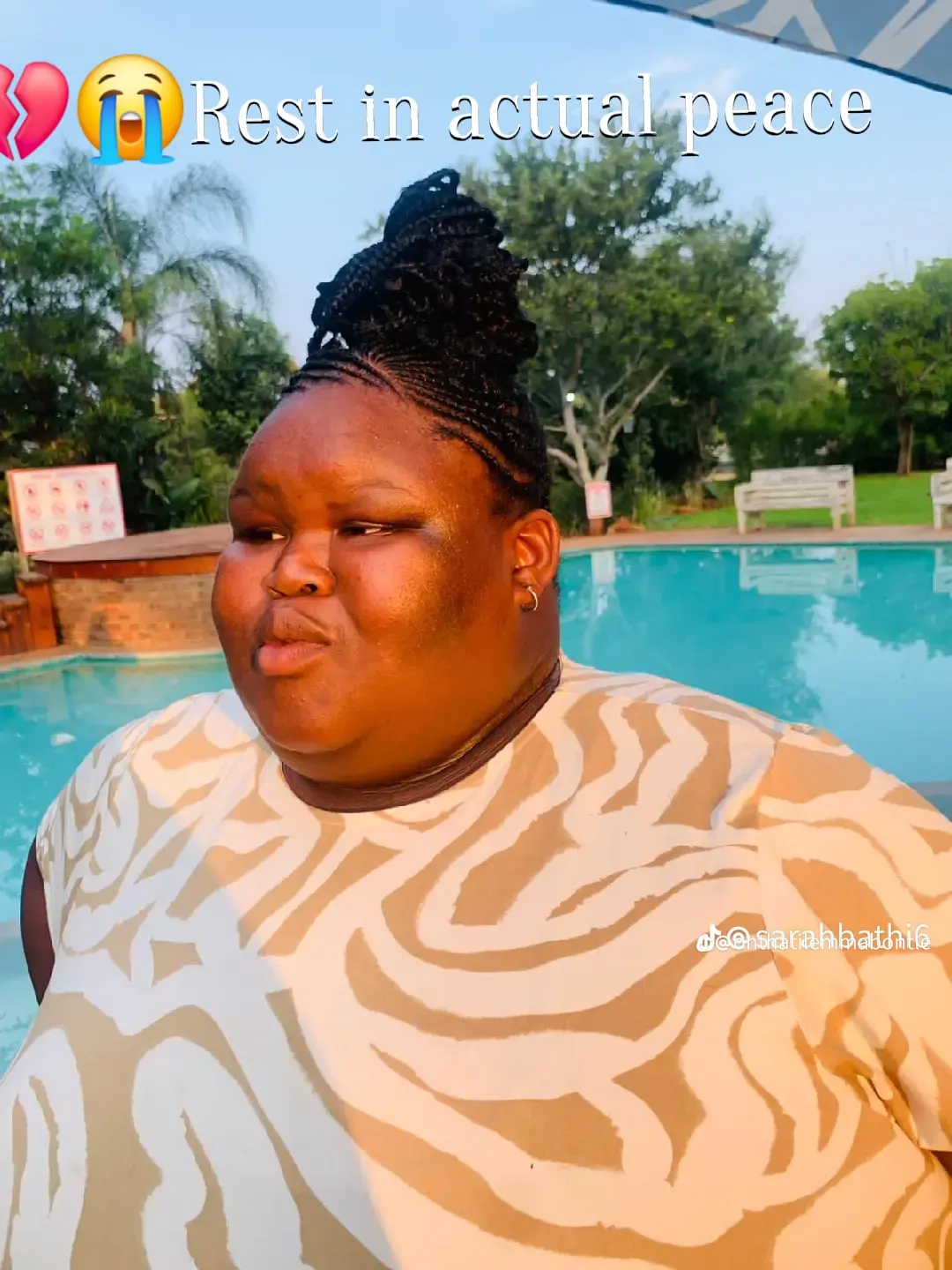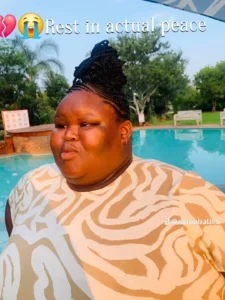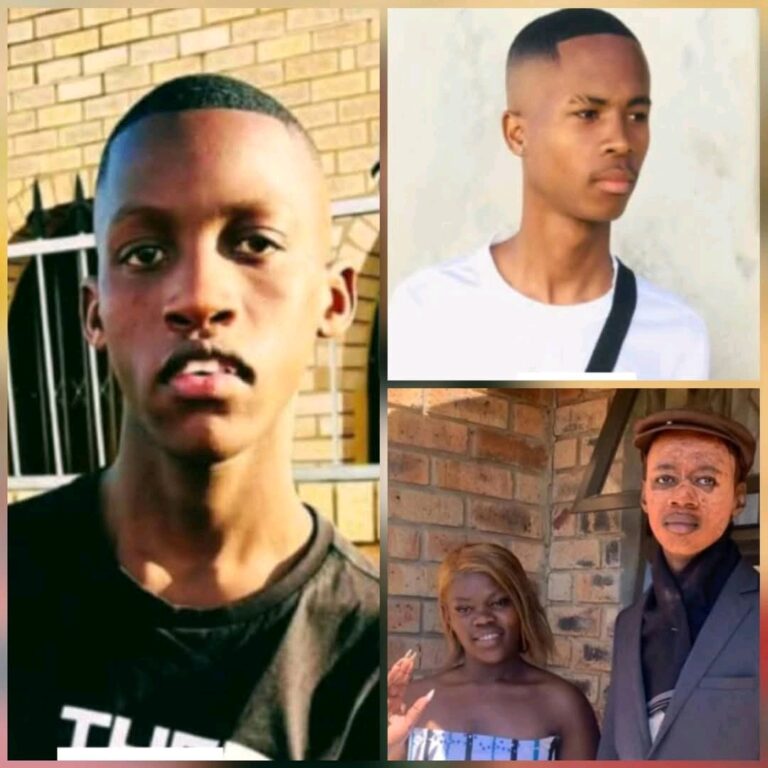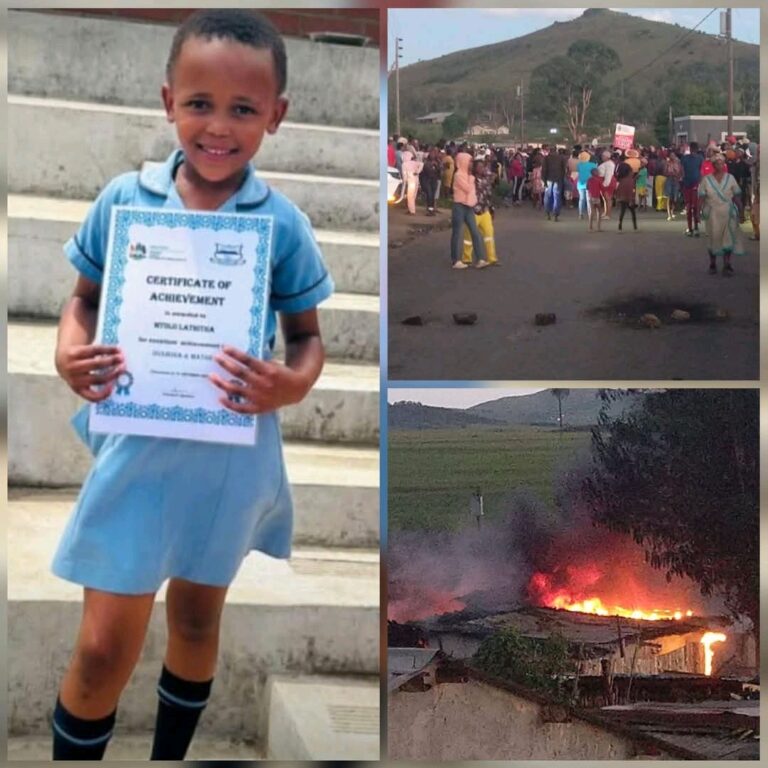
South Africa’s online community is mourning the tragic loss of Sarah Baloyi, a young TikTok user known as @SarahBathii, who reportedly took her own life after enduring relentless cyberbullying related to her appearance. The news has sent shockwaves through the TikTok community and has reignited conversations around body shaming, online harassment, and the mental health toll of social media.
Sarah had participated in a popular TikTok trend known as the “Collide Challenge,” which involves showcasing pictures of one’s parents followed by a personal photo to highlight family resemblance. Instead of lighthearted engagement, Sarah was met with cruel and fatphobic comments. Some users mocked her weight, with offensive remarks suggesting that she was unattractive or that her size was the result of consuming her parents—comments both dehumanizing and deeply hurtful.
The bullying escalated quickly in her comment section, and despite being part of what many consider a joyful and supportive platform, Sarah’s experience revealed a darker side of TikTok. As the insults mounted, it became clear to many followers that Sarah was struggling under the weight of constant negativity. It is believed that this cruel online harassment drove her to the devastating decision to end her life.
News of her death has left a somber mark on TikTok, where users and influencers alike have come forward to express their sorrow, share tributes, and demand change. Among the voices speaking out was @kgosi_mmamabasa, who emotionally highlighted the dangers of online toxicity and called for greater awareness around cyberbullying. The incident has sparked a wave of solidarity, with hashtags like #StopCyberbullying and #CyberBullyingAwareness gaining traction as users advocate for safer digital spaces.
Influencer Dominic Zac also weighed in, shedding light on the broader issues contributing to online toxicity. He pointed to a culture of political correctness perpetuated by major brands that often discourages creators from speaking up about sensitive topics like bullying. According to Dominic, the pursuit of brand-friendly content stifles authentic conversations and prevents meaningful awareness campaigns.https://x.com/cicitude/status/1910614153049358793?t=K4L31Y80XbfSSrBMaOwpzQ&s=19
The tragedy of Sarah Baloyi’s death is not an isolated case but a sobering reminder of the harsh realities many young people face online. While social media can be a source of joy, creativity, and connection, it also has the potential to cause profound harm—especially when platforms fail to protect vulnerable users from harassment.
Sarah’s story has become a rallying point for those pushing for stricter moderation, better reporting tools, and increased mental health support for content creators. More importantly, it has reminded users that behind every profile is a real person deserving of kindness and respect.
As tributes continue to pour in, the call for compassion, accountability, and digital safety grows louder. May Sarah’s memory serve as a catalyst for lasting change in how we treat one another, both online and offline.




